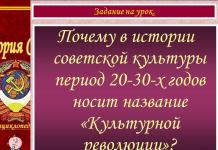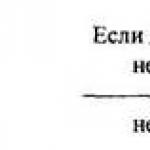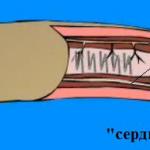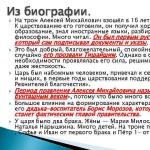Indirect Speech, то есть выражает слова другого человека. Сказанные по определению в прошлом, недавнем или давно прошедшем. Не обязательно устно, с таким же успехом передается написанный текст или цифровое сообщение. Сведения могут происходить от группы людей, и даже из более абстрактных источников, которые с трудом поддаются персонализации. Главное, что говорящий или пишущий субъект выражается не от себя лично, а ссылается на сторонних лиц.
Также косвенная речь в английском называется Reported Speech – «переданная» или «донесенная», в буквальном переводе. Более формальная лингвистическая формулировка «непрямая» обозначает то же самое.
Существует еще один способ передать чужое высказывание: прямая речь в английском языке , или Direct Speech. Это дословная цитата в кавычках, со вводной фразой вначале и двоеточием или запятой. Например, She said: «come to me this evening». Чем короче и проще введение, тем лучше. В нем используется Past Idefinite (Simple), Past или Present Perfect, Past Continuous. Но основное внимание следует уделить точному цитированию.
Прямая и косвенная речь в английском языке существенно различаются. Вторая намного сложнее первой. Составляется с изменением времен и многих характерных словосочетаний, с применением специфических речевых конструкций.
Косвенная речь в утвердительных предложениях
Кроме вводного глагола to say (как в примере She said …) часто используются и многие другие. Самые распространенные из них:
- admit (признавать);
- agree (соглашаться);
- ask (просить);
- assert (утверждать);
- claim (заявлять);
- deny (отрицать);
- exclaim (восклицать);
- insist (настаивать);
- promise (обещать);
- propose (предлагать);
- prove (доказывать);
- recommend (советовать);
- state (заявлять);
- suppose (предполагать);
- suggest (предлагать).
Но это лишь вводная часть. За ней идет самое интересное. Описывающие косвенную речь в английском языке правила сводятся к трем основным:
- местоимения заменяются подходящими по смыслу;
- глагольные времена согласуются в соответствии с приведенным ниже перечнем с примерами;
- слова, указывающие время и место, изменяются по общепринятым стандартам;
- некоторые глаголы переходят в другие – например, to tell вместо to say.
Последние два пункта в списке не очень строгие. Их нарушение нельзя считать грубой ошибкой, особенно в просторечии. Но соблюдение предписаний показывает образованность человека, следование правилам хорошего тона. Если вы собираетесь на прием у британской королевы, стоит включить в своей голове все полученные знания.
При замене местоимений чаще всего первое лицо заменяется третьим:
– I am tired (говорит студент) → Student said, he was angry.
Но может заменяться и второе первым:
– «You are doing wrong things» → He said, we was doing wrong things.
Здесь говорящий передает высказывание, адресованное ему самому третьим лицом. Местоимения обязательно следует заменять, руководствуясь здравым смыслом. Также возможна замена местоимения существительным или более подробным уточнением, и наоборот. She ↔ the teacher, или he ↔ my best friend.
Времена глаголов (Verb Tenses) изменяются по схемам, приведенным далее.
Используемые изначально в настоящем времени глагольные формы:
- Present Indefinite (Simple) → Past Indefinite (Simple);
- Present C → Past Continuous;
- Present P → Past Perfect;
- Present P Cont. → Past Perfect Continuous.
Из настоящего времени глаголы переходят в аналогичное прошедшее – простое (неопределенное), длительное или завершенное.
(Boy:) – I visit my parents everyday → Boy said, he visited his parents everyday.
(Girl:) – I am walking to the school→ Girl said, she was walking to the school.
(Teacher:) – They have done their homework well → Teacher recognized, they had done their homework well.
(Student:) – My friends have been studiyng hard all first semester → Student told, her friends had been studiyng hard all first semester.
Если события происходили в прошлом:
- Past Indefinite (Simple) → Past Perfect (за исключением просторечных выражений);
- Past Continuous (тоже не всегда) → Past Continuous Perfect;
- Past Perfect – останется прежним;
- Past Perfect Continuous – останется прежним.
Запомнить эту схему тоже просто: везде добавляется перфект, а если он уже присутствует, то остается на прежнем месте.
(Sportsman:) – Their team played badly → Captain said, their team had played badly.
Здесь подразумевается чужая команда, поэтому their не изменяется, третье лицо остается третьим. В данном случае косвенная речь в английском может оставаться в простом прошлом времени, если это неофициальная беседа. Вставка перфектного had характерна для более строгих официальных разговоров.
(Waiter:) – Visitors was eating roast beef and oysters → Waiter said, visitors had been eating roast beef and oysters.
В просторечии прошедшее продолжительное время тоже часто сохраняется, не переходя в длительное совершенное, характерное для высших слоев общества.
Если же косвенная речь в английском языке идет о будущем, применяется специфическое время «будущее в прошлом». Модальный глагол will при этом преобразуется в would.
- Future Indefinite (Simple): – I will study in the college → Student asserted she would study in the college.
- Future Continuous: – We will be working tomorrow → Workers said they would be working the next day.
- Future Perfect: – We will have terminate our study soon → Pupils said they would have terminated their study soon.
- Future Continuous Perfect: – We will have been playing → You said you would have been playing.
Изменение слов, показывающих на время или место действия, происходит следующим образом:
today → that day
tomorrow → the next day
the day after tomorrow → two days later
yesterday → the day before
the day before yesterday → two days before
next → following
last → previous
tonight → that night
Слева приводятся слова, используемые при непосредственном общении или в рамках цитат. Справа – когда вводится в английский косвенная речь . Как видно, просторечные и лингвистически простые языковые конструкции преобразуются в более книжные и заумные.
Никаких изменений не происходит во фразах, выражающих несомненный факт или прописную истину. В данном случае прямая и косвенная речь в английском языке выглядит или звучит одинаково. Например: She said that 22 June daylight is the longest (22 июня – самый длинный световой день). То же касается сослагательного наклонения (Subjunctive Mood), выражающему пожелание (не всегда реалистичное), предположение, возможность или сомнение. Например: It was proposed that the quality of production be improved (было предложено улучшить качество продукции). Еще один вариант, когда прямая и косвенная речь в английском совпадает – при передаче другому человеку слов, только что сказанных третьим. Поскольку они не успели «устареть», то и менять ничего не нужно.
Переход одних глаголов в другие касается тех, которые имеют формы прошлого времени, отличающиеся от употребляемых в настоящем:
- can (физическая возможность) → could;
- may (разрешение) → might;
- have to (долженствование) → had to.
Не претерпевают изменений must, ought и should, эти глаголы одинаковые в косвенной и прямой речи в английском . Однако, использование must зависит от выражаемого им смысла. Если это активный приказ или настойчивый совет, must сохраняется. При пассивной обязанности, из-за непреодолимых обстоятельств, must переходит в had to.
Косвенная речь в вопросительных предложениях
Вопросы подразделяются на общие (common) и специальные (special). Общие начинаются вспомогательным глаголом: Do или Did, Have или Had, и тому подобными. Специальные – одним из вопросительных слов: How, What, Where, When, и прочими. Когда задается вопрос, прямая и косвенная речь в английском соотносится по аналогичным правилам, что и утвердительные предложения. Сохраняется прежний порядок слов, при необходимости используется отрицание No, отрицательная частица not или сокращенное слитное написание словосочетаний: isn’t или aren’t, wouldn’t. Но также заменяются начальные слова в вопросах общего типа. Вместо Do или Have на первое место выносится союз if (если) или whether (ли). Кроме того, когда вводится в английский косвенная речь , в любых вопросах исчезает вопросительный знак.
– Do you play chess? → They asked if we played chess.
– Have you written this letter? → I asked them whether they had written this letter (я спросила их, написали ли они это письмо).
В специальных вопросах остаются неизменными вопросительные слова, в английский язык косвенная речь входит лишь с изменением знаков препинания, и по стандартным правилам для утвердительных предложений.
– When did you visited your friend? → Не asked when we had visited our friend.
– Can you call them? → She asked if we could call them. Вопрос может обращаться к одному собеседнику или нескольким, что обычно становится понятным из контекста. Слово you по сути не имеет определенного числа, хотя склоняется всегда, как используемое во множественном.
В кратких ответах косвенная и прямая речь в английском языке отличается. Yes и No пропускаются.
– They answered us: «Yes, we do». → They answered they did.
– You answered: «No, we don’t». → You answered that you did not.
Как обычно, Present Simple перешло в Past Simple.
Косвенная речь в побудительных предложениях
Повелительное наклонение выражает приказание или более мягкое указание, просьбу. При побуждении что-либо делать тоже используется косвенная речь, английский язык сравнительно прост в этом отношении: после вводной части ставится еще частица to c инфинитивом. И следует соблюдать правила, перечисленные в разделе, посвященном утвердительным предложениям.
– Teacher said, «Listen with attention!» → Teacher asked to listen with attention.
– Doctor said, «Be very careful outdoors!» → Doctor asked to be very careful outdoors.
Когда используется выражающая вежливую просьбу косвенная речь, английский глагол say переходит в ask или beg.
При выражении более строгого приказа применяются tell или order:
– Policeman said, «Leave this area!» → Policeman ordered to leave this area.
Слово Please пропускается:
– Driver said, «Please, give me ticket!» → Driver asked to give him ticket.
В побудительных предложениях с использованием отрицания частица not стоит перед to:
– Professor said, «Don’t come too late!» → Professor told not to came too late.
Итог
Если понадобится использовать косвенную речь, английский язык сложнее русского. Необходимо запомнить несколько правил, затем вовремя их применять. Наиболее трудный момент – изменение глагольных времен на перфектные или прошедшие. Изучающим иностранный стоит попрактиковаться в составлении утвердительных, вопросительных и побудительных предложений. Желательно употреблять не только самые популярные глаголы (to say), но и другие. Список некоторых из них был приведен ранее, хотя это лишь малая часть языкового богатства. Какие глаголы пригодны для употребления во вводной части (наподобие They said …), легко понять самостоятельно, просмотрев словарь или список. Это активные выражения, посвященные общению между людьми.
Если еще возникают затруднения, в крайнем случае можно использовать прямую цитату, передав ее письменно в кавычках или устно изменением тембра голоса и соответствующими паузами. Тогда ошибка исключается, и нет шансов показаться малообразованным человеком.
» Косвенная речь в английском языке. Упражнения
Рецензенты:
канд. филол. наук, доцент ОмА МВД России В.Г. Болотюк, ст. препод. каф. английского языка О.В. Гоголь
К710 Косвенная речь в английском языке: сб. трениро-
вочных упражнений по практической грамматике: для студентов I курса факультета иностранных языков / сост.: Д.Ю. Малетина, О.А. Никитина, Р.Р. Фазмутдинова.
– Омск: Изд-во ОмГУ, 2005. – 60 с.
ISBN 5-7779-0589-7
Сборник грамматических тренировочных заданий составлен на основе аутентичных источников, включающих материал английских и американских учебников, подготовлен с учетом требований учебной программы по курсу «Практическая грамматика английского языка».
Цель издания – помочь изучающим английский язык ознакомиться с грамматическим явлением «Косвенная речь» и отработать его на практике.
Сборник предназначен для студентов I курса факультета иностранных языков и может быть использован в группах с разным уровнем подготовленности.
ПРЕДИСЛОВИЕ
Предлагаемое учебное издание представляет собой сборник грамматических тренировочных упражнений.
Сборник упражнений составлен в соответствии с учебной программой по курсу «Практическая грамматика английского языка» и прежде всего предназначен для студентов I курса факультета иностранных языков, однако также может быть рекомендован студентам других факультетов, изучающим английский язык как основную специальность.
Сборник состоит из двух разделов:
1. Теоретическая часть (базовые правила по теме «Косвенная речь»).
2. Практическая часть (упражнения, направленные на отработку, закрепление и употребление в речи грамматических структур по данной теме).
Большая часть теоретического раздела представлена в таблицах, что способствует лучшему усвоению и запоминанию материала.
Задания из второй части сборника включают в себя проверочные и тренировочные упражнения, выстроенные по принципу нарастания сложности:
– подстановочные упражнения,
– трансформационные упражнения,
– упражнения на исправление ошибок,
– упражнения на грамотное завершение предложений,
– упражнения на правильное соединение начала и конца предложений,
– упражнения на перевод с русского языка на английский, а также с английского на русский,
– пересказ диалогов из оригинальных текстов в косвенной
Разнообразие упражнений позволяет использовать пособие
в группах разного уровня подготовленности, а также осуществлять разные формы работы со студентами.
При работе с упражнениями по теме «Косвенная речь» возможна отработка и некоторых других грамматических явлений, тесно связанных с использованием прямой речи.
Данный сборник тренировочных упражнений можно использовать в качестве дополнительного пособия в сочетании с другими, основными учебниками по грамматике английского языка.
PART I. RULES OF REPORTING
1. REPORTING STATEMENTS
When the statement in direct speech is converted into reported speech the following rules must be observed:
♦ If the verb to say introducing the indirect statement is followed by an object, use the preposition to (to say to smb.), though the expression to tell smb . is more preferable in this case.
Tom said, “I"m awfully tired.” |
Tom said that he was awfully tired. |
Tom said to Bob, “I"m awfully |
Tom said to Bob that he was awfully |
Or: Tom told Bob that he was aw- |
|
To say is usually used without an object to introduce the subordinate clause while to tell is followed by a direct object. Compare:
¾ She told me that she would be late.
¾ She said that she would be late.
The verb to tell can be a part of set expressions where a direct object can be omitted: to tell (somebody) a lie; to tell (somebody) a story; to tell fortunes (= to say what will happen to somebody in the future).
♦ No inverted commas are used in the reported statements.
♦ All personal and possessive pronouns are changed according to the person referring to the speaker.
♦ So and such are replaced by very, exceedingly etc. In exclamatory sentences:
She said, “Jane plays the pi- |
She said Jane played the piano very |
She said, “Jane is such a |
She said Jane was an exceedingly |
good pianist!” |
(very) good pianist. |
♦ The rules of the sequence of tenses are observed in the reported statements:
The Present Indefinite |
The Past Indefinite |
“I like peaches.” |
He said he liked peaches. |
The Present Continuous |
The Past Continuous |
“Is it raining?” |
He asked if it was raining. |
The Past I ndefinite |
The Pas t Perfect |
“I didn"t recognize you.” |
She explained that she hadn"t recognized |
The Present Perfect |
The Past Perfect |
“You"ve annoyed the dog.” |
I told her she had annoyed the dog. |
The Past Continuous |
The Past Continuous or the Past Perfect |
“I was joking about the |
Continuous : He said he was joking (or: |
he had been joking) about the price. |
|
The Past Perfect |
The Past Perfect |
“I hadn"t seen her before.” |
You said you hadn"t seen her before that |
The Future Indefinite |
The Future-Indefinite-in-the-Past |
“We"ll be late.” |
I was afraid we should (would) be late. |
♦ If the time or the place of the events described in the direct statement has changed, replace the demonstrative pronouns and the adverbs of time and place in the following way:
that day, at the time |
|
the day after tomorrow |
two days later, in two days" time |
the day before, on the previous day |
|
the day before yesterday |
|
the next year, the following year |
|
the previous week/year |
|
the other/previous night |
Note : In the sentences like: I said, “I"ll be here tomorrow.” (Я ска-
зал: «Я буду здесь завтра».) the adverbs here and tomorrow may stay unchanged if the statement is reported on the same day and at the same place: I said I would be here tomorrow. Notice that it is also correct to change the adverbs according to the rule mentioned above: I said I"d be there the following day.
♦ If the statement consists of a few clauses referring to the past, only the verb of the first clause is used in Past Perfect.
John: Tom has done all his |
John said that Tom had done all |
homework. He did it before go- |
his homework. He did it before |
ing to the concert. |
going to the concert. |
2. QUESTIONS IN REPORTED SPEECH
Word order in a reported question is the same as in a statement. ♦ A reported general question is introduced by the conjunc-
tion if or whether (before which there is no comma!):
Robert: Does it often rain in your |
Robert asked if it often rained in |
part of the country? |
their part of the country. |
Helen: Have you seen this film |
Helen wanted to know if Peter |
had already seen that film. |
♦ A reported special question is introduced by the same adverb or pronoun that introduces a direct question:
Tom said to the boys, “Who has |
Tom asked the boys who had |
tickets for “Hamlet?” |
tickets for “Hamlet.” |
John: Why are you late, Mary? |
John wanted to know why Mary |
♦ If a direct question to the subject contains the link verb to be, the direct order of words is not always strictly observed:
¾ Robert said, |
Robert asked Bob |
what his telephone number |
what was his telephone |
||
In set expressions like “What"s the time?”, “What"s the matter?”, “What"s the news!” inverted word order doesn"t change in reported speech.
♦ Reported questions are generally introduced by the following verbs and word combinations: to question; to inquire (more official than to “ask”); to want to know; I wonder; I"d like to know; Can you tell me and etc.
Short answers in reported speech
Short answers are converted into reported speech by repeating of the auxiliary or modal verb that a direct short answer contains. An auxiliary verb changes according to the rules of the sequence of tenses.
Frank: Has it stopped raining, |
Frank asked Polly if it had |
|
stopped raining and she said it |
||
yet? Polly: Yes. |
||
Mary: Does John ever come to |
Mary asked Bob if John ever |
|
came to see him and Bob said he |
||
see you? Bob: Never. |
||
Bob: Are you very tired, Mary? |
Bob asked Mary if she was tired |
|
and Mary answered she wasn"t. |
Reporting elliptical sentences
If some parts of the sentence are missing, they should be restored according to the situation in the reported speech.
Mrs. Armstrong: I say, Peter. Do |
Mrs. Armstrong told her hus- |
band sensational news. She |
|
know the latest sensation? The |
said the Browns were applying |
are applying for a divorce. |
Mr. Armstrong was very much |
Mr. Armstrong: Sounds incredi- |
surprised and said it sounded |
incredible, for the Browns had |
|
seemed so attached to each other. |
seemed very attached to each |
Mrs. Armstrong: Never expected |
His wife said she had never |
expected it herself. |
|
Nick: Feeling out of sorts? |
Nick asked Michael why he |
Michael: Rather. |
was feeling out of sorts. |
Nick: Private trouble? |
Michael said it was because of |
Michael: Yes, the children are |
the children. They were getting |
getting unmanageable. |
3. REPORTED ORDERS AND REQUESTS
An order or a request in reported speech is expressed by an infinitive; in a negative sentence the particle to precedes the infinitive.
Orders and requests are introduced into reported speech with the help of one of the following verbs: to tell, to order, to command, to ask, to request, to beg and others. The choice of the verb is determined by the character of the order (request).
♦ The verb most commonly used to introduce reported orders is the verb to tell: the verb to order is frequently used, occasionally also the verb to command. The verb to tell corresponds to the Russian сказать, чтобы and велеть; to order and to command correspond to
приказать.
♦ The verb to request is used in official style, chiefly in the Passive Voice. It is best rendered in Russian by предложить. The verb to request introduces rather a veiled order than a request.
♦ Unemotional requests are usually introduced by the verb to
♦ The verb to beg introduces a request somewhat more emo-
♦ Emotional (emphatic) requests are introduced by the verbs to implore, to entreat, to beseech (умолять).
♦ The verb to urge introduces a request made with great insis-
The doctor said to the patient, |
The doctor told the patient to |
“Keep the bed for some days.” |
keep the bed for some days. |
Peter said to Mary, “Would you |
Peter asked Mary to ring him up |
mind ringing me up at nine?” |
|
The lieutenant said to the soldiers, |
The lieutenant ordered (com- |
“Get ready for the march.” |
manded) his men to get ready for |
The teacher said to the pupils, |
The teacher told his pupils not to |
“Don"t talk.” |

He said to me, “Let"s go to the |
He invited me to go to the pic- |
Betty said to her friend, “Do stay |
Betty begged her friend to stay |
with us a little longer.” |
with them a little longer. |
Eliza said to the stranger, “Do |
Eliza implored the stranger to |
save my child!” |
|
The mother said to her son, “Do |
The mother urged her son to |
take care of yourself!” |
take care of himself. |
4. CONVERSATIONAL PATTERNS
IN REPORTED SPEECH
Greetings and Saying Good-by
To report greetings and saying good-by the following phrases are used:
Не greeted them, |
He said good-bye to… |
They greeted each other |
He bade them good-bye... |
He welcomed them. |
He took his leave. |
He took leave of... |
|
He wished them good night. |
The following phrases used in greetings and saying good-by (It "s good to see you; See you soon; Very good of you to come and etc.) may not be reported at all.
“Hello, Тоm.” |
Tom and Jack greeted each other. |
|
“Hello, Jack.” |
||
“Happy to see you at my place, |
Betty welcomed Mary saying that |
|
Mary,” Betty said. |
she was happy to see her at her |
|
Tom called, “Good night, Mary,” |
Tom wished Mary good night as |
|
as he went down the steps. |
he went down the steps. |
|
He said, “Good-bye, Helen.” |
He said good-bye to Helen. |
He bade Helen good-bye. |
|
He took leave of Helen. |
|
He took his leave. |
To report someone"s words used to introduce a person to another one the verb “to introduce” is used:
Mary: Mother, this is |
Mary introduced Mr. Prinston to |
To report someone"s words used in response to someone"s invitation the following phrases are used: he readily accepted the invitation; said he "d come most willingly; said she would be happy to…; declined the invitation and etc.:
Mr. Jackson: Come and have lunch with us on Sunday.
Mr. Black: I"d love to. Thank you very much.
Mrs. Parker: Can you come to dinner tomorrow? Mr. Eden: I"m sorry I can"t. I"m leaving tonight.
Mr. Jackson invited Mr. Black to lunch on Sunday and Mr. Black readily accepted the invitation.
Mrs. Parker invited Mr. Eden to dinner but he declined the invita- tion, as he was leaving that night.
To report expressions of gratitude the following phrases are
¾ Не thanked them for... – Он поблагодарил их за...
¾ Не said he was much obliged to him for... – Он сказал, что был очень обязан ему за…
¾ Не expressed his gratitude to him for... – Он выразил свою благодарность ему за...
¾ Не said he was grateful to him for... – Он сказал, что был очень благодарен ему за..
Words used in response to expressions of gratitude may not be reported at all:
Dick: Thanks for helping me with |
Dick thanked Tom for helping |
him with the bike. |
|
Tom: Oh, that"s all right. |
|
Mr. Jackson: Thank you ever so |
Mr. Jackson expressed his grati- |
much for your timely assistance. |
tude to Mr. Brown for his timely |
It saved me a lot of trouble. |
assistance which had saved him a |
Mr. Brown: Oh, not at all. It was a |
|
real pleasure to be of help. |
Mr. Brown said it had been a real |
pleasure to be of help. |
Apologies and Excuses
To report apologies and responses to them the following phrases are used: Не begged his pardon; He apologized to them for; She asked him to excuse her; He said it was all right:
Dick: Sorry for interrupting you. |
Dick begged Mrs. Parker"s par- |
Mrs. Parker: That"s all right. We |
don for interrupting her and she |
were just having a chat. |
said it was all right. Dick apolo- |
Dick: I"m sorry. I"m late. |
gized for being late. |
Bob: Excuse my rudeness. I didn"t |
Bob asked Mr. Black to forgive |
mean to hurt you. |
his rudeness but Mr. Black was |
Mr. Black: How could you be so |
too much hurt to forgive him. |
rude! It"s really unforgivable. |
Offers and advice are rendered in reported speech with the help of the following verbs: to suggest, to offer, to advise.
The verbs “to suggest” and “to offer” are a little different in meaning, which is reflected in the corresponding sentence structures. “То offer” is used when the speaker is willing to fulfill an action by himself: Не offered to see Mary home. Besides, “to offer” is used when they tell about something material: a cup of tea, a cigarette etc. “To suggest” is used when they tell about some idea, advice.
Nick: Let"s walk home, Mary. |
Nick suggested to Mary that |
they should walk home. |
|
Tom: What about going to the |
Tom suggested going to the |
Mary: You"d better stay at home, |
|
he should stay at home. |
|
Mary: Have a cup of tea, Bob. |
Mary offered Bob a cup of tea. |
Tom: I can fix that radio of yours |
Tom offered to fix the radio. |
The verb “to offer” is always followed by the infinitive, while the verb “to suggest” is used only in the following patterns:

was against it objected to doing it said she didn"t mind said she would not
In response to offers in the reported speech the following
phrases can be used: |
||||||
¾ He |
¾ He |
strongly objected to his |
||||
refused point blank. |
||||||
said he had better not. |
||||||
said he needn"t. |
||||||
To decline an offer sounds more polite than to turn down and to reject an offer; said he had better not…and said he needn"t… are typical to the spoken language, which is less formal.
Mr. Smith: I can drive you home |
Mr. Smith offered to drive Ben |
in my car, Ben. Ben: It"s very |
home in his car and Ben will- |
ingly accepted the offer (but Ben |
|
Ben: Oh, no, thanks a lot. |
refused point blank). |
Expressions of Surprise, Joy, Rapture
and Other Emotions in Reported Speech
said with surprise (amazement)...
said in surprise...
He expressed his surprise (amazement) at the news.
was surprised (amazed) to hear...
was surprised (amazed) at hearing…
Peter: Believe me or not! Paul |
Peter told Nelly that Paul had won |
won the European boxing title. |
the European boxing title. Nelly |
Nelly: You don"t say so! Who |
was surprised to hear it (or: at |
would have expected it of such a |
hearing that) and said she would |
never have expected it of him. |
|
¾ Не was delighted at their coming.
their having done it.
¾ He was delighted
¾ He expressed his joy (delight) at
to hear the news.
to hear that they...
the news. their coming.
their having done it.
¾ He said joyfully (with joy) that…
expressed his admiration of...
Mrs. Parker: I"m so happy! My |
Mrs. Parker told Mrs. Green joy- |
daughter has entered the Univer- |
fully (with joy) that her daughter |
had entered the University. |
|
Mrs. Green: Such joy! I"m de- |
Mrs. Green was delighted to hear |
lighted to hear that. |
the news (at the news). |
Regret, Consolation, Sympathy
being unable to do it. ¾ He regretted having said it.
that he had said it.
¾ He sympathized with…
expressed his sympathy with…

Bob: I"m so sorry I can"t attend |
Bob regretted being unable to |
|
attend the conference. |
||
Bob regretted that he was un- |
||
able to attend the conference. |
||
Mike: I"ll have to be operated on. |
Mike was nervous about the com- |
|
There"s no getting away from it. |
ing operation, and Peter sympa- |
|
I"m awfully nervous about it. |
thized with him. |
|
Peter: I"m so sorry for you. |
||
Irritation, Indignation, Offence
was annoyed (irritated) with him, at his words. expressed his annoyance (irritation) with her because of her conduct.
was angry (indignant) with him, at the news. ¾ He said (cried) in anger (in indignation) that…
resented their criticism (interference). said resentfully that…
said in a resentful tone that…
Mr. Sievers: I"ve been waiting for Peter for an hour. How very annoying! I wonder if he will come at all.
The professor: How dare you talk like this to me!
1. Mr. Sievers expressed his annoyance (anger) with Peter for being late.
2. Mr. Sievers was annoyed (angry) with Peter for being late.
3. Mr. Sievers cried in anger (in an angry voice) that Peter had kept him waiting.
1. The professor was angry at the way the students spoke to him and said so.
2. The professor got angry with the students for the way they spoke to him.
3. The professor resented the way the students spoke to him.
¾ Не expressed his grief at the news.
¾ Не was filled with despair at...
¾ He cried in despair that...
Helen: Such a pity Bob is out. I |
1. Helen was disappointed at |
rather hoped to find him in and |
not finding Bob in. She had |
talk the matter over. |
hoped to talk the matter over |
2. Helen expressed her disap- |
|
pointment at not finding Bob at |
|
5. MODAL VERBS IN REPORTED SPEECH
When the sentences with modal verbs are converted into reported speech, modal verbs undergo the following changes:
Must , as a rule, remains unchanged in reported speech if it expresses advice (order) or a supposition bordering on assurance (должно быть).
Must is generally replaced by had to if it expresses necessity arising out of circumstances.
She said to him, “You must be |
She told him he must be more |
more careful.” (advice) |
|
She said, “You must be very |
She said he must be very fond of |
fond of music if you go to con- |
music if he went to concerts so |
certs so often.” (supposition) |
|
She said, “I must get up early |
She said she had to get up early |
every morning.” |
When sentences containing the Subjunctive Mood are converted into reported speech, the form of the verb usually remains unchanged.
♦ However, there is a case when the rule of the sequence of tenses is observed: if we have the analytical subjunctive with the mood auxiliary may , may is changed into might if the verb in the principal clause stands in a past tense.
“I would be discharged if I were |
She said that she would be dis- |
|
charged if she were seen talking |
||
seen speaking to you.” |
||
“It is true I drink, but I wouldn"t |
He admitted that he drank, but |
|||
said he wouldn "t have taken to |
||||
have taken to that if things had |
||||
that if things had gone differ- |
||||
gone differently.” |
||||
“I think cheerfulness is a fortune |
She thought cheerfulness was a |
|||
fortune in itself. She wished she |
||||
in itself. I wish I had it.” |
||||
had it. |
||||
“Oh, how I wish I had never |
She said she wished she had |
|||
seen him!” |
never seen him. |
|||
“I suggest that we should have a |
She suggested that they should |
|||
have a rest. |
||||
“I insist that you go there imme- |
He insisted that we go there |
|||
“The boys will think none the |
He said that the boys would |
|||
worse of you whatever you may |
think none the worse of him |
|||
have done .” |
whatever he might have done . |
|||
7. VERBS USED TO CONVERT STATEMENTS
INTO REPORTED SPEECH (Except “say”, “tell”, “ask” )
♦ To announce (объявлять, заявлять, и звещать) is used when something is spoken in public, especially for the first time:
He announced that the conference would be postponed.
♦ То declare (объ являть, заявлять, провозглашать) is more formal than to announce . The statement with this verb sounds more solemn:
The strikers declared they would not give in.
♦ То inform (сообщать, информировать) reports statements, especially news:
Не informed us that the time-table had been changed.
♦ То remark (отмечать, замечать, высказываться) is used to report remarks:
Не remarked that he did not like jazz music.
♦ То state (заявлять, сообщать, из лагать, формулировать)
В English Language речь говорящего может быть передана с помощью direct и reported speech. Данные понятия в русском языке обозначают речь прямую и косвенную. Подобная тема, пожалуй, является одной из самых сложных в английском языке, так как содержит много правил. Однако, наша статья не только ответит на ваши вопросы относительно прямой и косвенной речи, но также позволит вам закрепить полученные знания на практике.
Прямая и косвенная речь в английском языке: упражнения на согласование времен
Прямая речь представляет собой чужую, переданную без изменений речь и оформляется следующим образом:
- слова автора отделяется от прямой речи точкой или запятой;
- чужая речь заключается в кавычки;
- кавычки ставятся сверху;
- знаки препинания - внутри кавычек.
Косвенная выражая содержание фразы, но не сохраняя, при этом, особенностей стилистики владельца, чьи слова были переданы. Для передачи такой речи на письме важно учитывать следующие моменты:
- косвенная речь иногда вводится союзом или вопросительным словом;
- в кавычки не ставится;
- вопросительный и восклицательный знаки, запятая опускаются.
При переходе грамматических форм английских глаголов в косвенную речь работает правило согласования времен.
Ниже даны примеры и упражнения на косвенную речь в английском языке.
| Direct Speech | Reported Speech |
| Present Simple | Past Simple |
| My friends said, “We want to go to Madrid.” — Мои друзья сказали: «Мы хотим поехать в Мадрид». | My friends said that they wanted to go to Madrid. — Мои друзья сказали, что хотят поехать в Мадрид. |
| Present Continuous | Past Continuous |
| Alice said, “I am playing golf now.” — Алиса сказала: «Сейчас я играю в гольф». | Alice said that she was playing golf then. —Алиса сказала, что она играет в гольф. |
| Present Perfect | Past Perfect |
| Maria claimed, “Yon haven’t told us the whole truth.” — Мария воскликнула: «Ты не рассказал нам всей правды». | Maria claimed that he hadn’t told them the whole truth. — Мария воскликнула, что он не рассказал им всей правды. |
| Past Simple | Past Perfect |
| My mum informed me, “Kate phoned you yesterday.” — Мама проинформировала меня: «Кейт тебе звонила вчера». | My mum informed me that Kate had phoned me the day before. —Мама проинформировала меня, что вчера мне звонила Кейт. |
| Past Continuous | Past Perfect Continuous |
| Jemma said, “My grandmother was watering the flowers.” —Джемма сказала: «Бабушка поливала цветы». | Jemma said that her grandmother had been watering the flowers. — Джемма сказала, что ее бабушка поливала цветы. |
| Future Simple | Future-in-the Past |
| He asserted, “I will repair my table tomorrow.” —Он утверждал: «Завтра я отремонтирую стол». | He asserted that he would repair his table the next day. — Он утверждал, что на следующий день отремонтирует стол. |
Упражнения. Переведите следующие предложения в косвенную речь.
- She said, “I want to try some juice.”
- He claimed, “You have not play the guitar."
- Jessy promised, “I will show you the right way.”
Особенности перехода глаголов say и tell, модальных глаголов

Глагол to say в косвенном предложении меняется на to tell, только в том случае, если to say принимает после себя дополнение.
В английском языке в косвенной речи выполнить довольно просто, если принимать во внимание следующие нюансы:
Модальные глаголы must, need, ought to, а также модальные глаголы, стоящие в прошедшем времени, в косвенную речь входят без изменений. Остальные модальные глаголы изменяются по правилу согласования времен.
| Direct Speech | Reported Speech |
| Can | Could |
| My brother said, “I can speak Russian.” — Мой брат сказал: «Я умею говорить по-русски». | My brother said that he could speak Russian. — Мой брат сказал, что умеет говорить по-русски. |
| May | Might |
| Misha said to me, “You may phone me at 10 p.m.”— Миша сказал мне: «Ты можешь позвонить мне в 10 часов». | Misha told me that I might phone him at 10 p. m. — Миша сказал мне, что я могу позвонить ему в 10 часов. |
| Shall | Should |
| My friend asked, “Shall I buy this book?” —Мой друг спросил: «Может, я куплю эту книгу»? | My friend asked if he should buy that book. — Мой друг спросил, не купить ли ему книгу. |
| Shall | Would |
| Ann said, “I shall be in Moscow the day after tomorrow.” — Анна сказала: «Я буду в Москве послезавтра». | Ann said that she would be in Moscow two days later. — Анна сказала, что будет в Москве через 2 дня. |
Переведите следующие предложения в косвенную речь:
- Peter said, “I had to finish my composition yesterday.”
- Sarah said, “You must rewrite all your essays.”
Употребление наречий времени и места в прямом и косвенном предложениях

Наречия времени и места при обращении прямой речи в косвенную речь также претерпевают значительные изменения. В английском языке в косвенной речи упражнения на употребление наречий не будут представлять большой сложности, если учитывать тот факт, что они в косвенную изменяются, в соответствии с логикой.
Упражнения: переведите следующие предложения в косвенную речь:
- Lisa says, “I am singing today.”
- He claimed, “I went to the factory yesterday.”
Особенности употребления общих и специальных вопросов в косвенных предложениях
В косвенной речи в английском языке упражнения на общие и специальные вопросы руководствуются следующими правилами:
- вопросительные слова, союзы if, whether соединяют главное и придаточное предложения в общих и специальных вопросах;
- порядок слов сохраняется по примеру повествовательного предложения;
- вспомогательные глаголы do, does, did опускаются;
- точка заменяет вопросительный знак;
- кавычки убираются;
- в кратких ответах частицы yes / no опускаются.
Упражнения на вопросы в косвенной речи в английском языке. Выполните перевод следующих предложений в косвенную речь:
- Kate asks Alice, “Did you go to the fitness centre yesterday?”
- Alice answered, “Yes, I did.”
- She asked mum, “Who drank my milk?”
Повелительное наклонение в косвенных предложениях

При переводе повелительных предложений в косвенную речь следует принимать во внимание следующие нюансы:
- утвердительные предложения вводятся to + инфинитив;
- отрицательные предложения — not to + инфинитив;
- знаки препинания опускаются;
- не соблюдается.
Если прямая речь выражает приказ или запрет, то глагол to say в придаточном предложении меняется на один из глаголов to tell, to order, to forbid и др. Если же в прямой речи отображена вежливая просьба, то в косвенной речи глагол to say меняется на to ask.
Выполните следующие упражнения в косвенной речи в английском языке:
- The father asked daughter, “Show me this boy.”
- John asked me, “Bring me some sugar, please.”
Особенности употребления местоимений

Местоимения в косвенной речи изменяются, согласно требованиям логики. При замене некоторых местоимений меняется форма глагола.
Косвенная речь в английском языке. Упражнения на перевод местоимений:
- He says, “My name is Carlos.”
- Leila said, “She can go with me.”
Пример: She said to me, “Open the window!” – She told me to open the window.
- My mother said to me, “Put on your coat!”
- My friend said to us, “Don’t come today.”
- He said to Mary, “Don’t forget to send me an e-mail.”
- Karrie said to me, “Call me tomorrow.”
- She said to me, “Don’t shout at me!”
Задание 2. Заполните пропуски словами say и tell в нужной форме.
- I…………her that she was my only friend.
- Did he…………he would stay in New York?
- She…………that she was going to invite me.
- They didn’t…………us they were ill.
- She…………she didn’t play the piano.
Задание 3. Переведите вопросительные предложения из прямой речи в косвенную.
Пример: He asked me, “Do you know my sister?” – He asked me if I knew his sister.
- She asked John, “When are you going to come?”
- He asked her, “Who is your favourite actor?”
- A man asked me, “Do you have a car?”
- My father asked me, “Where were you yesterday?”
- Helen asked him, “Will you be at home?”
Задание 4. Переведите из прямой речи в косвенную предложения с модальными глаголами.
- He said, “I can drive a car.”
- She said to me, “You ought to call her.”
- She said, “He must stay here.”
- They said to me, “You should drive more carefully.”
Задание 5. Заполните пропуски.
- ”He came yesterday.” She said that he had come……………
- “My parents will arrive today.” He said that his parents would arrive……………
- “I will contact you tomorrow.” He said he would contact me………………
- “I was there the day before yesterday.” She said she was there………………
Ответы с пояснениями
Задание 1.
- My mother told me to put on my coat.
Если прямая речь выражает приказание, то глагол to say меняется на глагол to tell . Повелительное наклонение заменяется в косвенной речи инфинитивом (глагол с частицей to ).
- My friend told us not to come that day.
Если прямая речь выражает приказание, то глагол to say меняется на глагол to tell . Отрицательная форма повелительного наклонения заменяется инфинитивом с частицей not . Today меняется на that day .
- He told Mary not to forget to send him an e-mail.
Если прямая речь выражает приказание, то глагол to say меняется на глагол to tell . Отрицательная форма повелительного наклонения заменяется инфинитивом с частицей not .
- Karrie told me to call her the next day.
Если прямая речь выражает приказание, то глагол to say меняется на глагол to tell . Повелительное наклонение заменяется в косвенной речи инфинитивом (глагол с частицей to ). Tomorrow меняется на the next day .
- She told me not to shout at her.
Если прямая речь выражает приказание, то глагол to say меняется на глагол to tell . Отрицательная форма повелительного наклонения заменяется инфинитивом с частицей not .
Задание 2.
- told
После глагола to tell всегда следует косвенное дополнение, обозначающее лицо, к которому обращена просьба или приказание – told her .
say saidКосвенного дополнения, обозначающего лицо, к которому обращена просьба или приказание, нет. Поэтому употребление глагола to tell исключено.
tellПосле глагола to tell всегда следует косвенное дополнение, обозначающее лицо, к которому обращена просьба или приказание – tell us .
saidКосвенного дополнения, обозначающего лицо, к которому обращена просьба или приказание, нет. Поэтому употребление глагола to tell исключено.
Задание 3.
- She asked John when he was going to come.
Present Simple меняется на Past Simple (are going –> was going). Вопросительный порядок слов заменяется порядком слов повествовательного предложения.
- He asked her who was her favourite actor.
Present Simple меняется на Past Simple (is –> was). В этом предложении “Who is your favourite actor?” вопросительного порядка слов нет изначально, так как это вопрос к подлежащему. В косвенной речи также сохраняется порядок слов повествовательного предложения.
- A man asked me if I had a car.
Present Simple меняется на Past Simple (have –> had). Общие вопросы переводятся в косвенную речь при помощи союзов if/whether . Вопросительный порядок слов заменяется порядком слов повествовательного предложения.
- My father asked me where I had been the day before.
Past Simple меняется на Past Perfect (were –> had been). Вопросительный порядок слов заменяется порядком слов повествовательного предложения. Yesterday меняется на the day before .
- Helen asked him if he would be at home.
Future Simple меняется на Future in the Past (will be –> would be). Общие вопросы переводятся в косвенную речь при помощи союзов if/whether . Вопросительный порядок слов заменяется порядком слов повествовательного предложения.
Задание 4.
- He said that he could drive a car.
В косвенной речи can меняется на could .
- She told me that I ought to call her.
Если после to say имеется дополнение, обозначающее лицо, к которому обращаются с речью (to me), то say заменяется tell . Глагол ought в косвенной речи не изменяется .


















